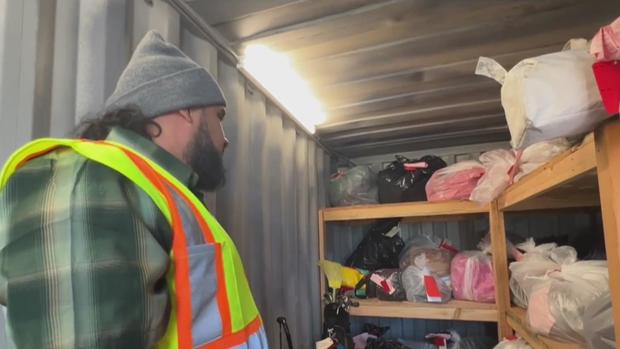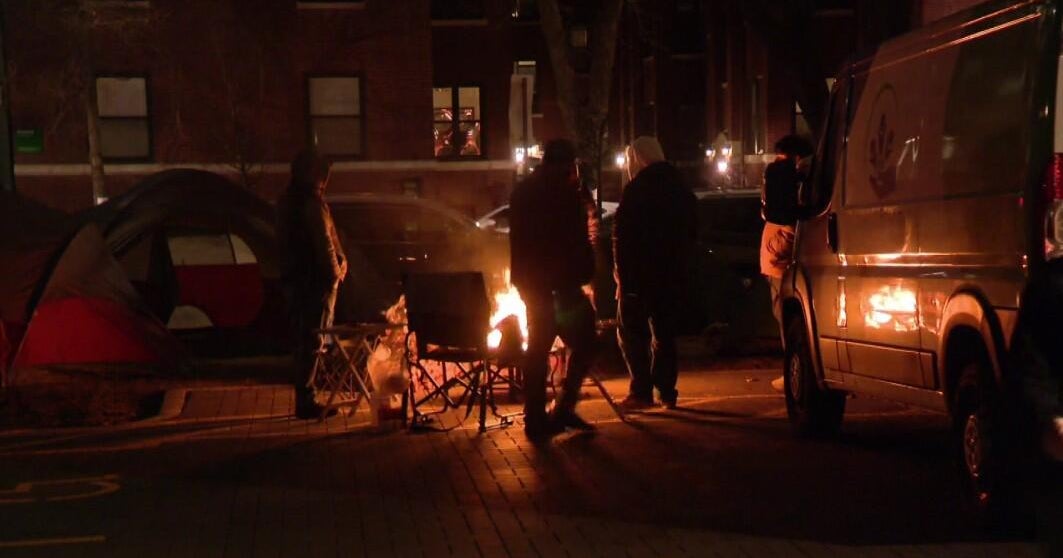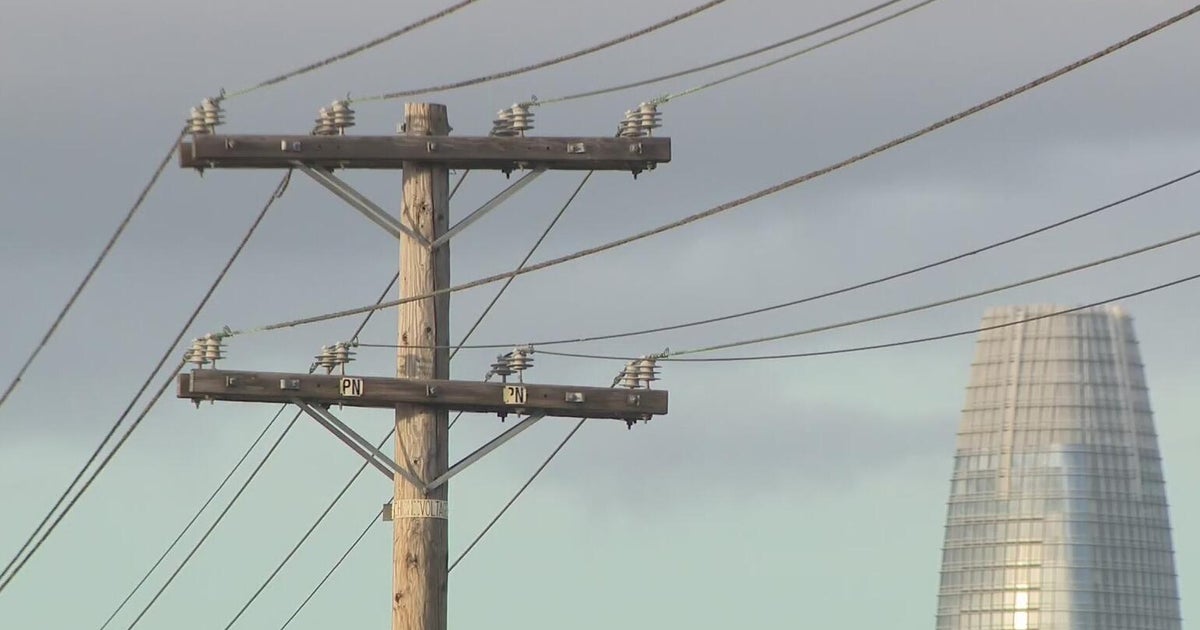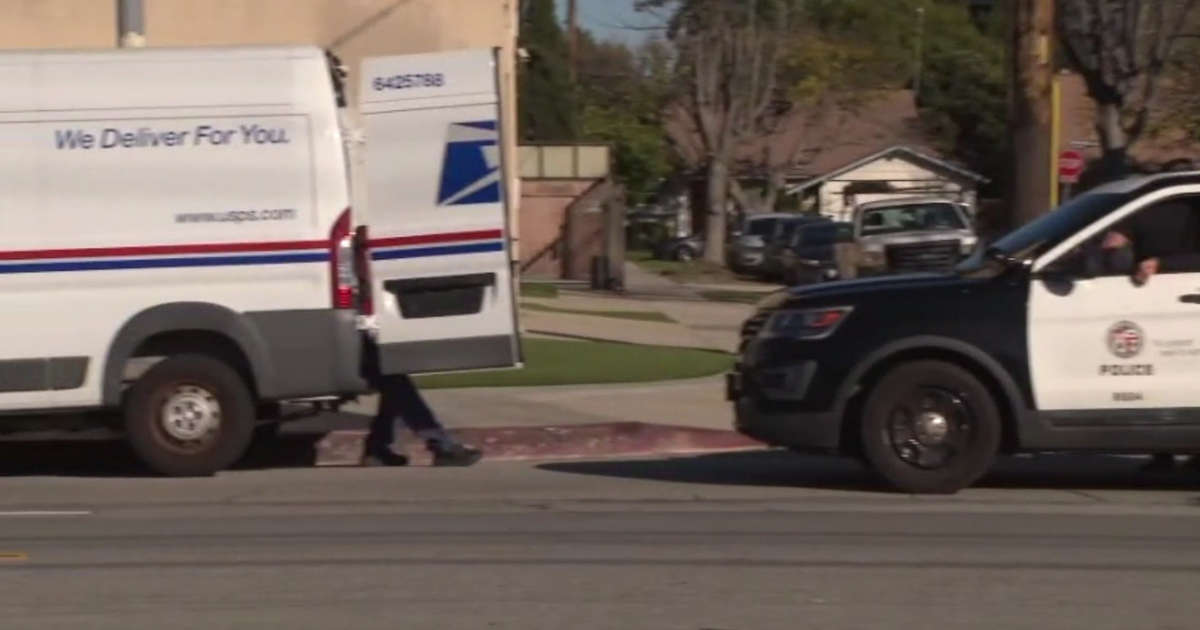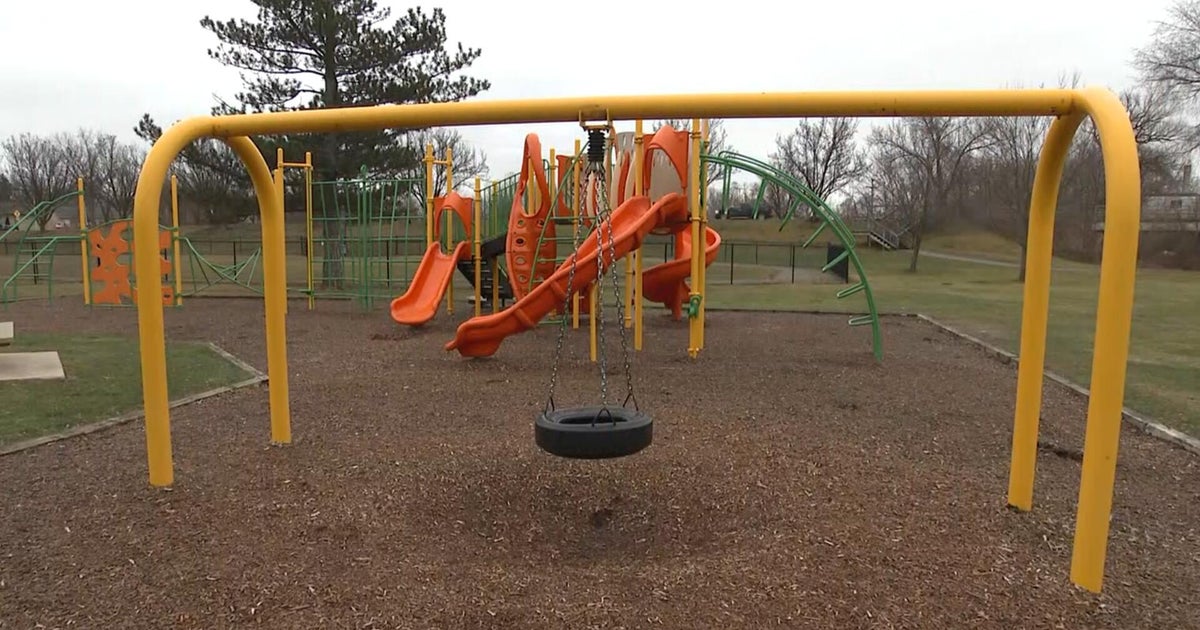Items from SF homeless encampments being closely watched as sweeps ramp up
San Francisco's policy for bagging and tagging property that is removed from a homeless encampment is being closely watched by critics and supporters of the city's latest crackdown on clearing the encampments.
Once property is sorted through at the site of a sweep, workers with the Department of Public Works comb through each item to determine if it is salvageable, soiled or hazardous.
Items deemed salvageable are then placed in a bag and tagged at the site where members of the team will document the process with photos and a paper trail.
They are then taken to the DPW facility in the Bayview neighborhood, where operations supervisor Edgar Garcia is tasked with making sure the items are safe and secure.
"I think maybe a lot of people think that we're just throwing people's items away for no reason," he told CBS News Bay Area.
He opened a storage container marked "A" where items collected in the month of August will be kept.
When items are taken from the site of an encampment, a notice is posted with information for where they can be retrieved.
Within the first 72 hours, a person can stop by the facility at any time to claim their belongings. They will be stored for up to 120 days, an additional 30 days after their legal requirement to hold them.
"Luggage, scooters, speakers, tools, canopies, golf clubs," Garcia said, pointing to items in the container. "We'll store about everything, grills."
Garcia has seen every side of this process. A DPW employee for nearly a decade, he's spent part of that time on the team that conducts the cleanings and item sorting.
"Since I saw what the people out there are going through, it made me value what I do here now, because I was…now I'm not just a bad guy taking stuff from it," he explained. "I'm somewhat the good guy giving it back to them."
The process is rigorously watched by critics who have claimed the department hasn't followed its own policies.
In a statement to CBS News Bay Area, John Do, an ACLU attorney representing the Coalition on Homelessness in its lawsuit over the city's sweep policy, said "we're alarmed by eyewitness video of city workers literally ripping personal belongs out of an unhoused person's hands in brazen violation of both the city's bag-and-tag policy, the federal injunction, and the Constitution."
"San Francisco is required to store personal property collected from the street that has not been abandoned," the statement continued. "The Fourth Amendment protects individuals from unreasonable government seizures of their property, even when that property is stored in a public place."
Critics have alleged the city has mishandled people's personal items, at times destroying one's property.
It's a complaint that has forced the organization to implement training and systems that provide evidence that they are complying with the law.
As the supervisor of the process, Garcia also keeps a close eye on the process. He says he treats each piece of property as though it's his own.
"It's important, because at the end of the day, we're storing people's personal items, and it might be the only items that they have. So we want to make sure that when they do show up, they get everything that belongs to them," he explained. "We don't know how they got arrested, what they got arrested for. We don't know what they're already going through. So we don't want to make this process any harder."
The process has adapted over the last few years and now includes photos from its origin and place in the storage unit, and a paper trail from owners to collect their items.
Garcia is also tasked with handing the property back to its owner, a moment he says can turn someone's day around.
"You see somebody walk up to the gate upset, mad, angry, just anger in their face. But when they see their items handed back to them, their face changes," he said. "They tell you to have a good day. You have one as well."
